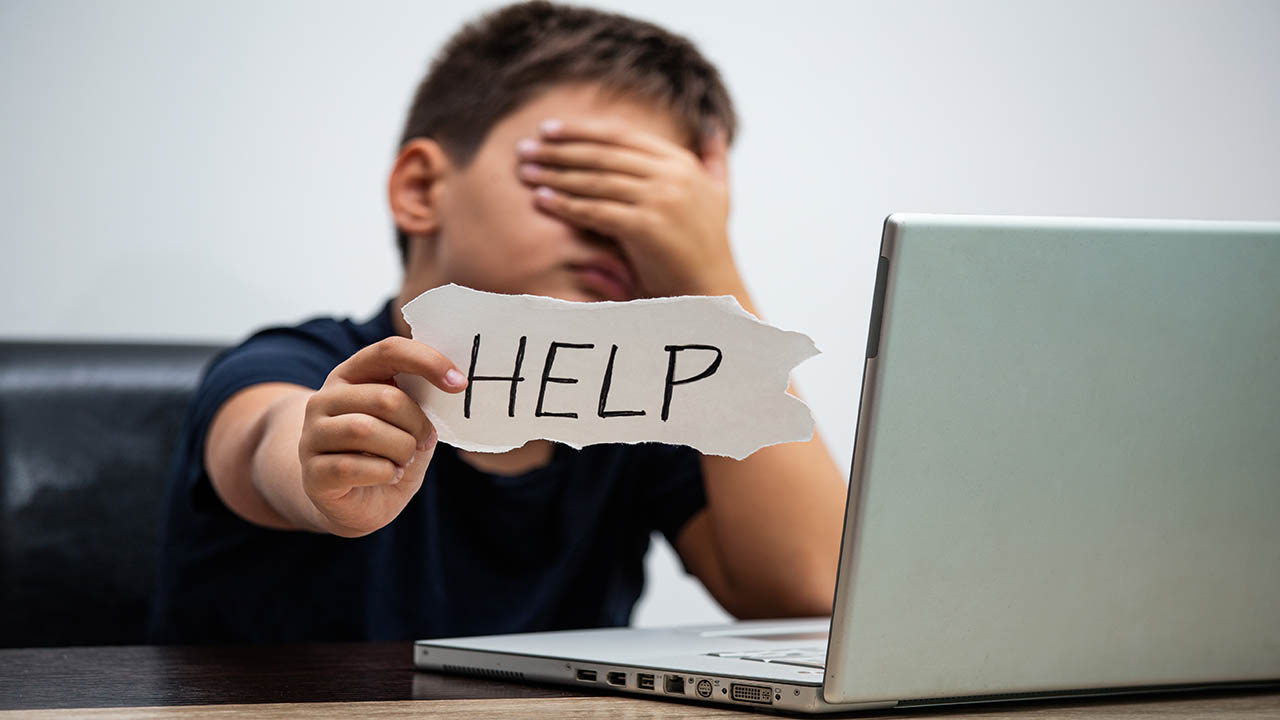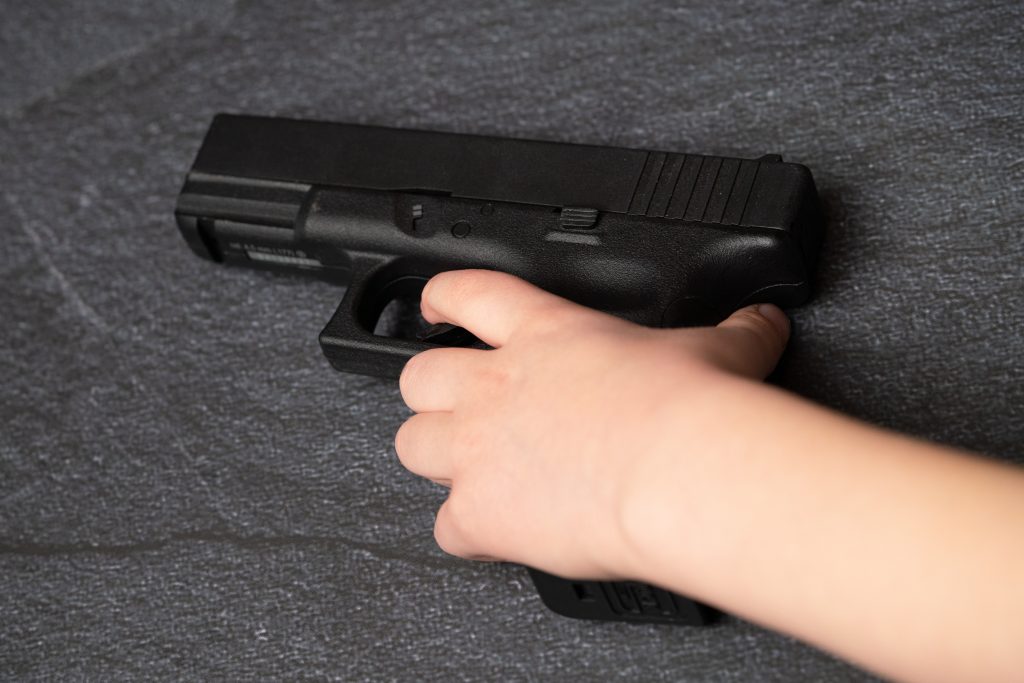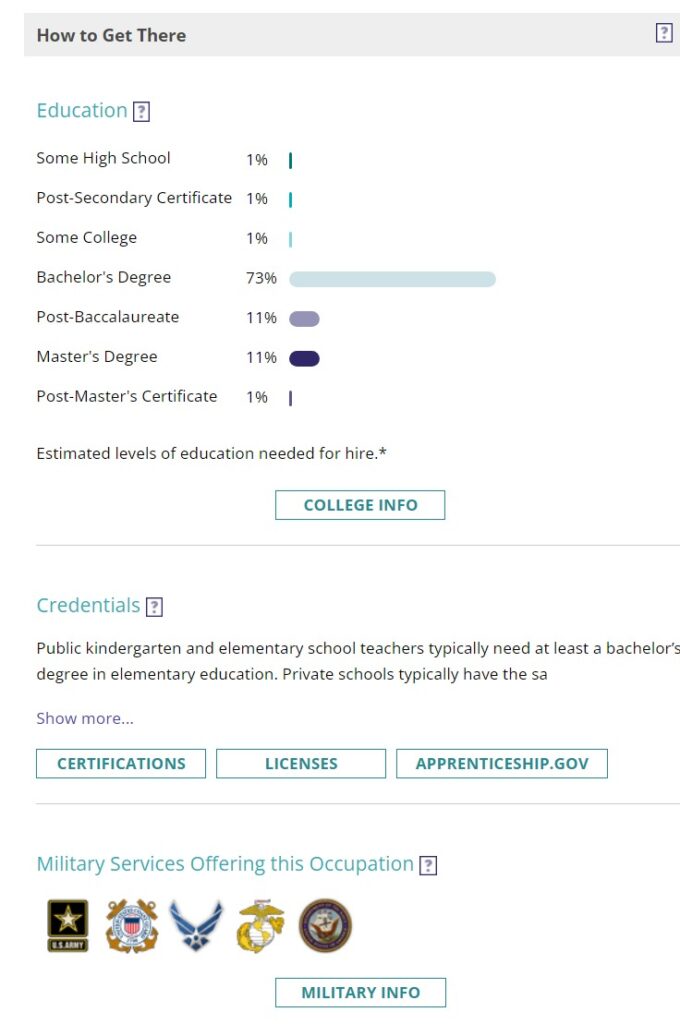
22 Empowering Mental Health Activities for Teens
If you talk to just about any middle school or high school teacher, they’ll tell you—kids are struggling right now. Schools are sounding the alarm on the growing mental health crisis for America’s kids, and according to a national poll conducted by Effective School Solutions, the country’s school administrators, parents, and students continue to battle a significant youth mental health crisis. Results show “Nearly 90% of administrators and almost 60% of parents reported that the crisis is growing. Roughly 60% of administrators say young people’s mental health remains the same or has worsened compared to a year ago.” Obviously, it’s never been more important to focus on supporting students’ mental health. That’s why we collected 22 mental health activities for teens to help you support their well-being in the classroom.
1. Create a positive vibe
Set your classroom up for student success by creating a supportive, safe environment in your classroom. Place a high value on relationships. Offer choices. Celebrate mistakes. Model compassion. Let your students know that their mental health is at the top of your priority list and include mental health activities in your curriculum.
Learn more: Easy Ways To Build a Mentally Healthy Classroom
2. Give students time to talk
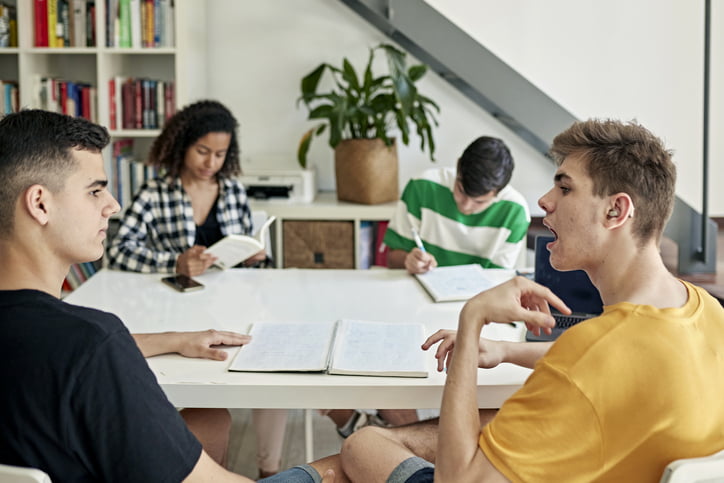
From helping students process what they’re learning and encouraging them to successfully work with one another to build connections, making space for talk time in your classroom is critical.
Learn more: Why Kids Need More Talk Time in the Classroom
3. Leave space for quiet
Much of the typical school day involves busy, noisy interaction. Preserve time in your schedule for snippets of peace and quiet to give students time to settle down and focus. Run relaxing videos in the background or put on soft, soothing music during quiet work time. Or dim the lights and light a few (battery-powered) candles for a few minutes of silence.
Learn more: How To Use Transition Times for Mental and Emotional Health Check-Ins
4. Go outside
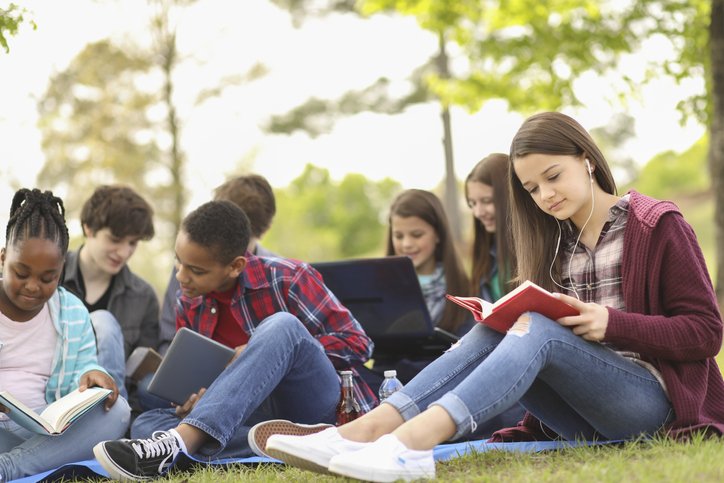
The benefits (for both physical and mental health) of spending time outdoors have been well documented. Allowing students to step outside for just a few minutes helps counteract the overstimulation of the classroom. A breath of fresh air and a moment to look up at trees or stare up at the sky does wonders for recharging their batteries. If you don’t have direct access to the outdoors, even five minutes at an open window can do the trick. Hold class outside as often as you can.
Learn more: Healthline/Health Benefits of Spending Time Outdoors
5. Incorporate calming mind-body exercise
The benefits of mind-body exercises for students include increased self-control, anxiety management, concentration, and mental focus. Teach focused breathing techniques. Experiment with relaxation exercises and guided visualizations.
Learn more: Calming Mind-Body Exercises To Try With Your Students
6. Get up and move
[embedded content]
Movement breaks are great mental health activities for teens because they help help students reenergize and refresh. Incorporate short bursts of exercise like the one above into your agenda. Practice a few simple yoga poses or shake out pent-up energy. Or put on some tunes and have a five-minute dance party.
Learn more: Responsive Classroom/Movement Breaks to the Rescue
7. Introduce specific mental health tools
There are many resources available to help your students stay on top of their mental health. Tools like thought record worksheets, feeling wheels, daily mood trackers, and self-care assessments take very little time, but they can have a big impact.
Learn more: Positive Psychology
8. Allow fidgets

Fidget toys are a great tool for students to calm their nerves, relieve stress, and serve as a distraction in an overstimulating environment.
Learn more: Classroom-Friendly Fidget Toys and Devices To Help Students Focus
9. Tap into art therapy exercises
The healing power of art is especially beneficial for the mental health of teens. After all, art serves as a safe and effective way of expressing thoughts and feelings. Incorporate short art sessions into your week. Try one of these Spontaneous Art Therapy Activities.
Learn more: The Studio Director/Healing Art Therapy Activities
10. Create a quiet space
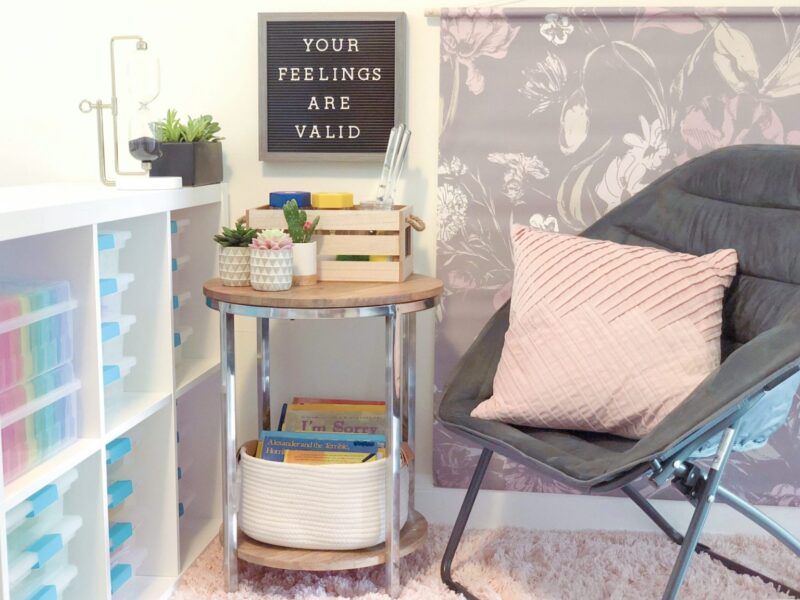
A calm-down corner, also known as a peace corner, gives students a place to take a breath and re-center so they can join the learning again. Fill the space with various mental health activities for teens, such as fidgets and poetry books.
Learn more: How To Create and Use a Calm-Down Corner in Any Learning Environment
11. Facilitate community with team-building activities
All work and no play doesn’t work for anyone’s mental health, regardless of their age. Build team-building activities into your curriculum throughout the year to encourage community and help strengthen relationships among your students.
Learn more: Icebreaker Activities for Middle and High School Students
12. Cultivate a class garden

Nothing is more grounding than digging in the dirt and watching something grow. And though tending to a garden—from seed to harvest—is a slow process, the rewards are immeasurable.
Learn more: Growing Minds: Farm to School
13. Set up a tea station
Another great way to calm your nerves—a good cup of tea. Set up a tea station in your classroom, complete with electric tea kettle and mugs. Ask families to donate boxes of tea, sugar packets, bottles of honey, etc., then invite students to visit your tea station when they need to take a break.
14. Adopt a classroom pet
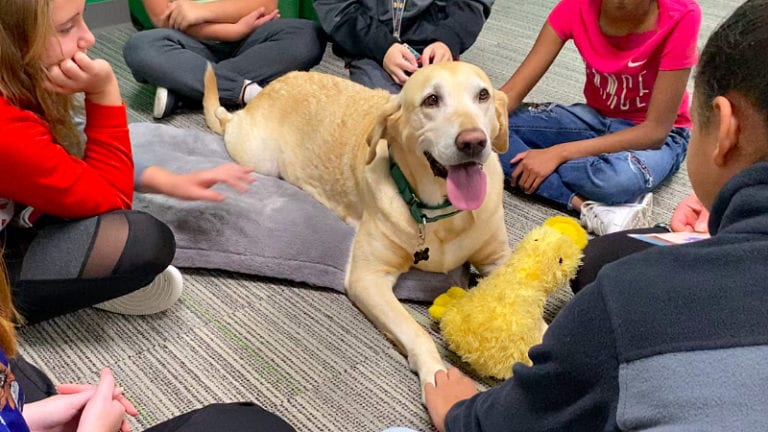
Studies show interaction with animals can help decrease stress, improve physical and mental health, and even help kids with their emotional and social skills. Consider adopting a classroom pet. Or if classroom pets are not allowed at your school, look into finding registered Pet Partners volunteers who can bring a therapy animal into your classroom.
Learn more: Dogs in the Classroom Improve SEL, Cognitive, and Even Reading Skills
15. Have a supply of adult coloring books on hand
From reducing stress and sparking creativity to utilizing their brains, taking a few minutes to zone out and just color helps students hit the reset button and get back to learning.
Learn more: Project Helping/Benefits of Adult Coloring
16. Let the music flow
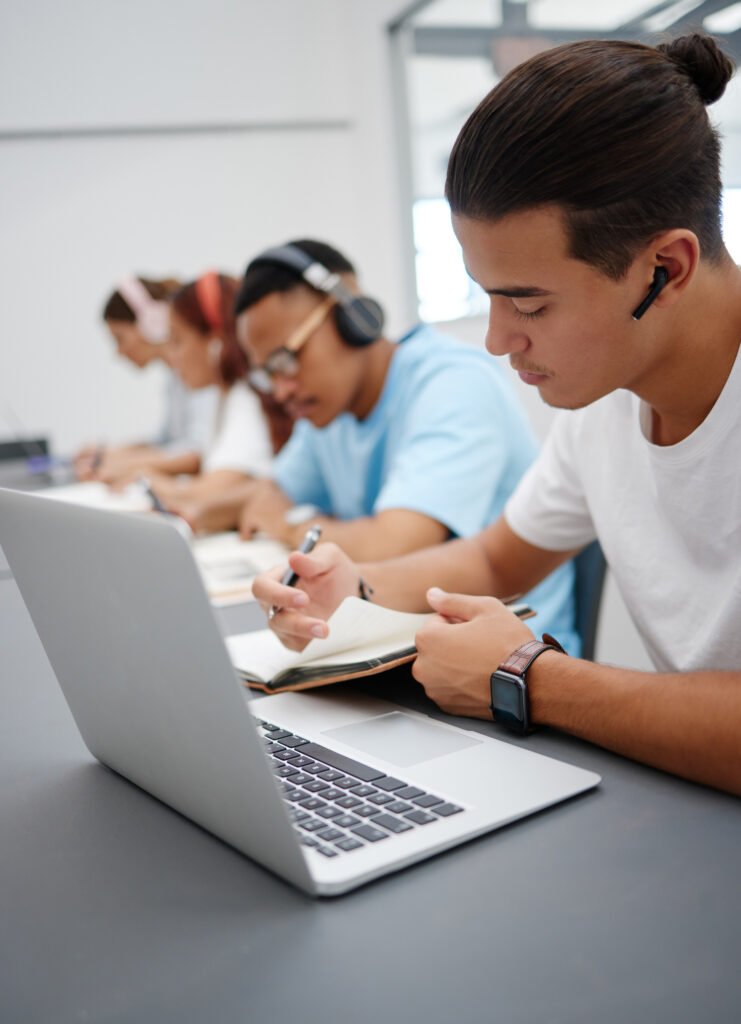
From stress relief and self-soothing to emotion regulation and physiological benefits, music plays a powerful role in mental health and well-being for many people. For teens, music often takes on an even greater significance—it can contribute to the process of identity formation. Whenever possible, allow your students to tune in to music.
Learn more: Princeton Health/Music Fosters Healing for Teens
17. Practice mindfulness
It’s hard for students to focus when they’re experiencing stress and anxiety. Mindfulness is an excellent tool to help reduce tension and recharge students’ attention spans. Try these Mindfulness Practices for High Schoolers.
Learn more: Ways To Bring More Mindfulness and Self-Care Into Your Classroom
18. Write it out
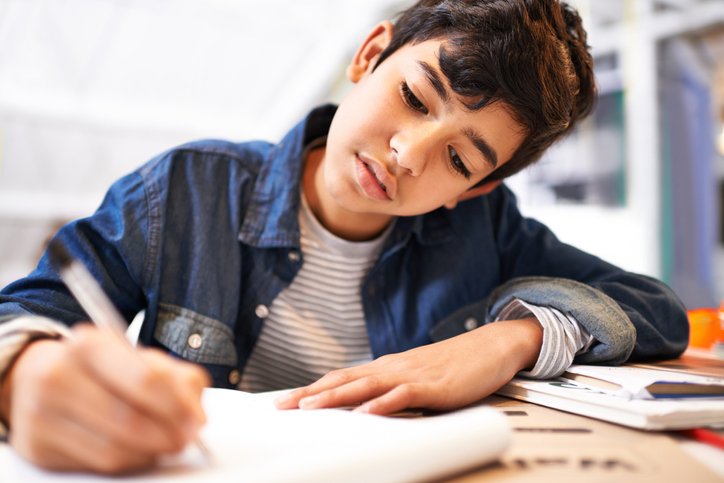
Writing activities are a powerful tool to help teenagers convey their feelings. Writing allows the expression of sensitive emotions that might be difficult to state verbally. These mental health activities can help teens gain a better perspective on their emotions while also building confidence and self-esteem.
Learn more: Mom Junction/Therapeutic Activities for Teens
19. Reinforce the importance of diet and sleep at home
For the most part, teachers don’t really have a lot of control over what students eat and how much they sleep, but these things do matter when it comes to managing anxiety. Not surprisingly, a healthy diet and plenty of sleep make a difference in how well a student is able to handle situations that could be overwhelming.
Learn more: Ways To Help Students Who Struggle With Anxiety
20. Allow snacks in your classroom

Along those lines, trust students to know when they need to feed their bodies. Yes, snacks can create messes in the classroom, but the benefits of preventing low blood sugar, hunger headaches, etc., are worth a little mess. Simply have a chat with your students and lay out your expectations for responsible snacking in your classroom.
Learn more: Real Mom Nutrition/Healthy Snacks for Teens
21. Try aromatherapy
Aromatherapy is thought to help activate certain receptors in the brain, potentially easing anxiety. Whether in the form of essential oil, incense, or a candle, natural scents like lavender, chamomile, and sandalwood can be very soothing. Check for sensitivities among your students before introducing a scent to the whole class. An alternative could be an unlit candle, dried herbs, or a sachet treated with essential oil kept in the classroom safe space for students to use individually.
Learn more: Ways To Help Students With Anxiety
22. Brain breaks are for big kids too
Sometimes we forget that our seemingly grown-up kids still like to have a little fun in the classroom. Brain breaks are a great way to take five, move around, and even giggle together. You can adapt these ideas to fit your particular crew.
Learn more: Educational Brain Breaks Your Students Will Love
If you liked these mental health activities for teens and want more articles like this, be sure to subscribe to our newsletters!
Also, check out Teaching Seniors at the End of the School Year: A 5-Step Survival Guide.
Dig Deeper With Our Longreads
Newsletter Sign up to get our best longform features, investigations, and thought-provoking essays, in your inbox every Sunday.
The MEN was founded by John Huber in the fall of 2020. It was founded to provide a platform for expert opinion and commentary on current issues that directly or indirectly affect education. All opinions are valued and accepted providing they are expressed in a professional manner. The Maryland Education Network consists of Blogs, Videos, and other interaction among the K-12 community.


